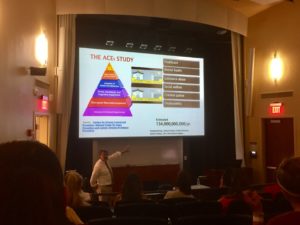Alyssa Plotnick , Lion’s Eye Staff Writer, alp5814@psu.edu
Berkey ice cream, the Lion taking selfies and multicultural trivia were part of the Brandywine Multicultural Club’s student welcome party in the Vairo courtyard during the first week of school. This club encourages people of all ethnicities and nationalities to share their cultures and is open to any student .
At the event, new and returning students enjoyed Penn State favorites including Berkey Creamery Ice Cream in Peachy Paterno and Cookies & Cream flavors, Brookies, the combo of brownie and cookie, a welcome cake and soft pretzels. During the event, international music played while students mingled. The Nittany Lion attended the event and took selfies with students. World trivia, with candy as the prize, was presented with questions spanning the cultures of the United States to Kenya. Student Yana Markedonva, a club officer, stated, “I helped with this event, so I am glad students are enjoying it.”
On Brandywine’s campus, more than 40 countries are represented sprinkling dozens of foreign languages. Now with the residence of Orchard Hall, international students can live at Brandywine. Planned trips for international students include a food tour of Philadelphia, Dave & Buster’s, Bird-In-Hand Farmer’s Market, and more. Besides the welcome party, the Multicultural Club and International Student Program arranges events throughout the year including, Game Break Days, an on-campus pre-Thanksgiving feast , gingerbread house decorating , and more. Student Alexandria Hatchett said, “I like how this club gets people to share each other’s culture and awareness.”
The multicultural, multilingual, and international programs have something for everybody. Stop in to a meeting and get involved. Look for the announcement of events through e-mail and postings around campus
